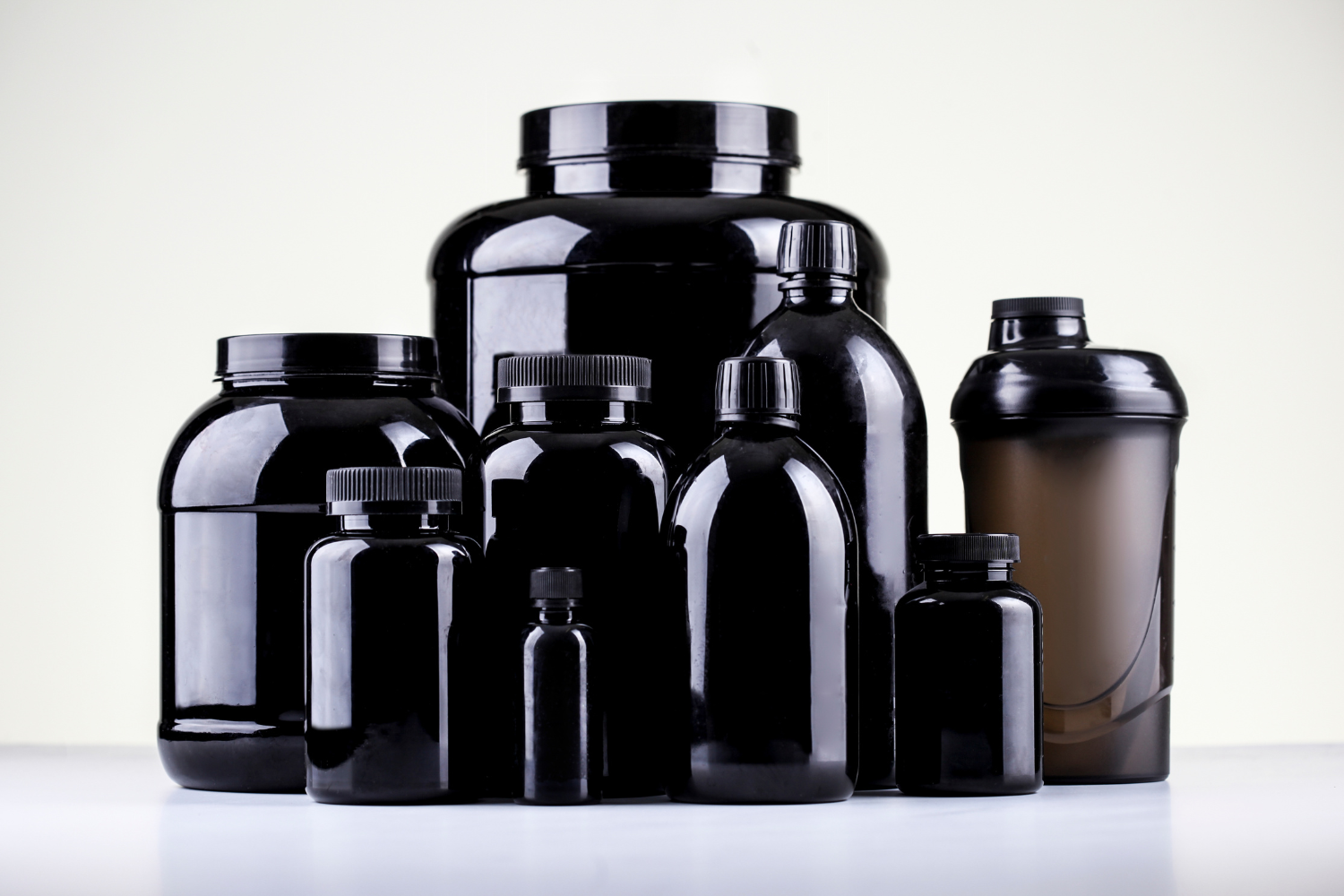Launching a supplement brand involves navigating important decisions, including choosing between private label and contract manufacturing. These two manufacturing approaches offer distinct benefits depending on your business model, product specifications, and growth strategy. Understanding the difference between private label and contract manufacturing is essential for selecting the right manufacturing partner, especially in a competitive market where brand identity, product quality, and cost-effective solutions drive success.
This guide explains the key differences between private label manufacturing and contract manufacturing services, helping businesses determine the best path for bringing their own brand of supplements to market.

What’s the Difference Between Private Label and Contract Manufacturing?
Choosing how your supplements are made is key in building your brand. Understanding the difference helps you pick the best option for your goals, timeline, and budget.
What is Private Label Supplement Manufacturing?
Private label manufacturing means working with a third-party manufacturer that offers ready-made formulas. You choose from an existing product, add your own brand name and logo, and sell it as your own. These private-label products are often used by influencers, gym owners, or smaller companies looking to enter the market quickly.
It’s a popular option for businesses that want to launch fast and avoid high equipment costs or lengthy development. Many private label manufacturers offer a wide product range, so you can pick supplements that align with your brand and customer needs.

What is Contract Supplement Manufacturing?
Contract manufacturing is a more customized option where the manufacturer produces supplements based on your exact specifications. This method gives you full control over the formula, ingredients, and packaging. It’s best suited for companies that want to create something original, such as custom blends that reflect current market research, nutritional trends, or products with unique ingredient combinations.
Contract manufacturers work closely with you to manage the manufacturing process, ensuring your final product matches your vision. This path works well for brands that need advanced skills, tighter quality control, and a clear brand identity.

Pros and Cons of Private Label Supplements
Taking the private label route comes with both advantages and limitations. Understanding these factors can help you decide if they align with your brand goals and resources.
Benefits of Private Labeling
Private label companies make it easier to enter the supplements market without starting from scratch. Since the manufacturer controls most of the production process, you save time and resources.
Pros of private label manufacturing include:
- Faster time to market
- Lower upfront costs
- Easier for beginners and startups
- Access to products that may already meet certain compliance and testing standards, depending on the manufacturer
- Reduced overhead costs
- No need to develop proprietary formulas
Drawbacks of Private Labeling
Although private-label manufacturing is simple, it limits how much control you have over the product. Many brands may end up selling the same product, making it hard to stand out.
Cons of private label manufacturing include:
- Less product customization
- May share formulas with other brands
- Limited control over ingredients or sourcing
- Difficult to create unique brand recognition
- Lower ability to scale with specialized needs

Pros and Cons of Contract Supplement Manufacturing
Contract manufacturing offers more freedom but requires more planning and investment. It’s ideal for companies that want a custom manufacturing solution with full oversight of how their product is produced.
Benefits of Contract Manufacturing
With contract manufacturing services, brands can create supplements that reflect their vision. This is a strong choice for those aiming to stand out in a crowded market or designed to align with specific wellness preferences or dietary needs.
Pros of contract manufacturing include:
- Full control over formula, branding, and sourcing
- Custom product specifications and labeling
- Better for scaling or unique product positioning
- Stronger brand identity and differentiation
- Higher potential for high-profit margins
- Potential for more tailored quality control and support with regulatory compliance, depending on the manufacturing partner
Drawbacks of Contract Manufacturing
Creating a custom supplement from scratch means more time, money, and management. These projects require clear planning and often involve complex steps before launch.
Cons of contract manufacturing include:
- Higher upfront costs
- Longer development time
- More complex compliance needs
- Greater responsibility for testing and product quality
- Need for internal or hired expertise in manufacturing products

How to Choose: Private Label vs. Contract Manufacturing
Choosing between private label and contract manufacturing depends on your brand’s goal. Your goals, timeline, and resources all play a role in selecting the right manufacturing approach for your supplement business.
What Are Your Business Goals?
The right choice starts with understanding your brand’s direction. Private label are often better for launching quickly with store brands or simple product offerings. Contract manufacturing, on the other hand, works well for companies focused on long-term growth, product innovation, or unique brand recognition. Your decision depends on how much you want to customize and how involved you want to be in the manufacturing process.
| Goal | Private Label Manufacturing | Contract Manufacturing |
| Speed | Fast to launch | Longer setup time |
| Customization | Limited | Full control over formula and design |
| Starting a brand | Ideal for beginners or test launches | Better for brands with clear vision |
| Building a product line | May limit variety over time | Supports wider, tailored product line |
What’s Your Budget and Timeline?
Cost and speed are significant factors. Private label manufacturers usually have low startup costs and can deliver quickly. Contract manufacturers involve more time and higher investment but offer tailored solutions. Knowing how much you’re willing to spend—and how fast you want to move—helps narrow down the best path.
Cost and timeline breakdown:
- Private label: Often involves lower upfront equipment costs and shorter lead times, which can range from a few weeks to a couple of months, depending on the supplier
- Contract manufacturing: Higher initial costs due to R&D, testing, and custom packaging
- Private label suits limited budgets and smaller orders
- Contract manufacturing can suit companies that have the budget and product vision—regardless of size—to support custom development
What Kind of Control Do You Want Over Ingredients?
Contract manufacturing ultimately gives you more say in your formula, which is vital for brands focused on clean-label, vegan, or allergen-free products. These markets demand transparency and strict regulatory compliance, which is especially important for brands targeting specialized dietary markets, such as allergen-free or vegan formulas.
If ingredient sourcing, dosage levels, or proprietary details matter to your audience, having complete control through contract manufacturing is essential. On the other hand, private label companies may not disclose every detail, and formula changes are usually not allowed.
Why Do Wellness Brands Outsource Supplement Manufacturing?
Wellness companies often rely on third-party manufacturers to avoid the heavy lifting of production. Using a manufacturing partner allows them to focus on marketing, growth, and building a strong brand.
Simplified Operations
Outsourcing reduces the need to manage raw materials, staffing, and manufacturing equipment. Instead of investing in facilities or training, businesses can use existing manufacturing capabilities from experienced providers.
Built-in Regulatory Knowledge
Contract manufacturing services and private label manufacturers understand industry standards, labeling rules, and ingredient restrictions. This reduces risk and ensures your final product meets legal and safety guidelines across various industries.
Focus on Branding & Sales Instead of Production
Letting a third-party company handle production gives you more time to build your identity, reach multiple channels, and improve customer experience. Instead of worrying about each unit produced, you can grow your own brand with consistent quality and better marketing efforts.
What Most People Get Wrong About These Two Models
Many assume that private-label manufacturing is always the cheaper option. While it often has low startup costs, prices can increase with branding upgrades or packaging changes. On the other hand, contract manufacturing isn’t just for large or established brands—smaller companies with niche formulas or science-backed products also benefit from the flexibility and custom solutions it offers.
There’s also confusion around things like trademarks and product exclusivity. Choosing contract manufacturing doesn’t automatically guarantee ownership of a formula unless it’s clearly stated in your agreement. Private label and contract options require attention to regulatory compliance and intellectual property rights to avoid future issues with label and contract manufacturing partnerships.
How to Get Started with the Right Manufacturing Partner
The next step is finding a trusted manufacturing partner once you decide which manufacturing model fits your brand. This part of the process is key to building a strong product line and protecting your brand identity.
Questions to Ask Manufacturers
Ask about their manufacturing capabilities, production process, lead times, regulatory compliance, and support with quality control. Find out if they help with packaging, labeling, and testing.
Tips for Finding Reputable Supplement Manufacturers
Look for private label companies or contract manufacturers with experience in nutrition products and a proven track record in your market. Check certifications, read client reviews, and request product samples when possible.
Checklist: What to Prepare Before Reaching Out
- Clear product idea or formula goals
- Budget range and expected volume
- Preferred packaging and labeling needs
- Timeline for launch
- List of must-have certifications (e.g., GMP, NSF)
- Branding assets if going with private label
Which Manufacturing Model is Right for You?
Choosing between private label and contract manufacturing depends on what your supplement brand needs today—and how you plan to grow. The private label route works well if you’re looking for a simple entry point into the market with cost-effective and fast solutions.
If you aim to build a standout brand with original formulas, contract manufacturing services give you the manufacturing solutions and control to make it happen. Either way, the right manufacturing approach can shape your success in the health and wellness industry.
Frequently Asked Questions
What is the key difference between private label and contract manufacturing?
Private label uses pre-made formulas, while contract manufacturing creates custom products from scratch.
Is private labeling cheaper than contract manufacturing?
Yes, generally, private labeling has lower upfront costs and is faster to launch.
Can I customize ingredients in a private-label supplement?
Usually, no-private label offers limited or no customization options.
Which is better for small businesses: private label or contract manufacturing?
Private labels are usually better for small businesses starting out due to their simplicity and lower cost.
How long does it take to launch with each option?
Private labels can take a few weeks; contract manufacturing can take 3–6 months or more.
References
- U.S. Food & Drug Administration. (2020). Contract Manufacturing Arrangements for Drugs: Quality Agreements Guidance for Industry. https://www.fda.gov/regulatory-information/search-fda-guidance-documents/contract-manufacturing-arrangements-drugs-quality-agreements-guidance-industry
- U.S. Food & Drug Administration. (2024). Current Good Manufacturing Practices (CGMPs) for Food and Dietary Supplements. https://www.fda.gov/food/guidance-regulation-food-and-dietary-supplements/current-good-manufacturing-practices-cgmps-food-and-dietary-supplements
- U.S. Food & Drug Administration. (2024). Dietary Supplements. https://www.fda.gov/food/dietary-supplements
- U.S. Food & Drug Administration. (2023). New Dietary Ingredients in Dietary Supplements. https://www.fda.gov/food/new-dietary-ingredient-ndi-notification-process/new-dietary-ingredients-dietary-supplements-background-industry
- U.S. Food & Drug Administration. (2018). Small Entity Compliance Guide: Current Good Manufacturing Practice in Manufacturing, Packaging, Labeling, or Holding Operations for Dietary Supplements. https://www.fda.gov/regulatory-information/search-fda-guidance-documents/small-entity-compliance-guide-current-good-manufacturing-practice-manufacturing-packaging-labeling
- U.S. Food & Drug Administration. (2024). Questions and Answers on Dietary Supplements. https://www.fda.gov/food/information-consumers-using-dietary-supplements/questions-and-answers-dietary-supplements
- U.S. Patent and Trademark Office. (2021). Trademark basics. https://www.uspto.gov/trademarks/basics



